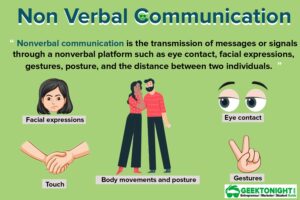In today’s fast-paced and interconnected world, interpersonal communication stands out as one of the most vital skills for personal and professional success. Whether we are engaging in a heartfelt conversation with a friend, collaborating with colleagues on a project, or resolving a conflict in the workplace, our ability to communicate effectively with others determines the quality of our relationships and growth – both personal and professional.
What Is Interpersonal Communication?
Interpersonal communication is the process of exchanging information, feelings, and meaning between two or more people through verbal and non-verbal methods. It is not merely about speaking or listening—it’s about understanding and being understood. This exchange occurs in face-to-face conversations, phone calls, emails, video meetings, and even body language cues.
It includes various elements such as tone of voice, facial expressions, gestures, posture, eye contact, and the use of space. When used effectively, these elements enhance clarity and connection but when misused, they can create confusion, tension, or even conflict.
Importance of Interpersonal Communication
- Builds Strong Relationships
Healthy communication is the cornerstone of strong relationships. Whether it’s in a family, friendship, or team, expressing thoughts openly while respecting others’ perspectives leads to trust, empathy, and collaboration. - Enhances Teamwork and Collaboration
In the workplace, effective interpersonal communication leads to better collaboration, smoother project execution, and stronger team dynamics. It encourages open dialogue, minimizes misunderstandings, and boosts morale. - Aids in Conflict Resolution
Misunderstandings are inevitable, but how we handle them defines the outcome. Good interpersonal communicators are more equipped to defuse tension, express concerns calmly, and find win-win solutions. - Boosts Career Growth
Professionals who communicate well are often seen as leaders and problem-solvers. They are better at influencing others, networking, and presenting ideas with clarity—skills highly valued in today’s corporate world. - Improves Emotional Intelligence
Interpersonal communication fosters self-awareness and empathy. When we tune into how others feel and communicate thoughtfully, we deepen our emotional intelligence, which benefits every aspect of life.
Types of Interpersonal Communication
- Verbal Communication: Spoken words, whether in-person, on a call, or through digital platforms.
- Non-verbal Communication: Body language, facial expressions, gestures, posture, and eye contact.
- Listening: Active listening is a crucial yet often overlooked part of communication. It means fully concentrating, understanding, and responding—rather than just hearing.
- Written Communication: Emails, texts, and memos are also forms of interpersonal exchange, especially in today’s digital workplaces.

Barriers to Effective Interpersonal Communication
Despite its importance, several barriers can impede effective communication:
- Cultural Differences: What is acceptable in one culture might be misunderstood in another.
- Emotional Barriers: Stress, anger, or fear can cloud our ability to express or receive messages clearly.
- Physical Distractions: Noise, poor lighting, or uncomfortable settings can affect attentiveness.
- Assumptions and Prejudices: Jumping to conclusions without listening or observing attentively leads to miscommunication.
- Lack of Feedback: Without feedback, the communicator cannot know if the message was understood as intended.

How to Improve Interpersonal Communication Skills
- Practice Active Listening
Show genuine interest in the speaker’s words. Avoid interrupting, nod to show engagement, and ask clarifying questions. - Be Aware of Non-verbal Cues
Maintain eye contact, use open body language, and ensure your tone aligns with your message. - Be Clear and Concise
Avoid jargon and speak with clarity. Keep your message simple and to the point. - Show Empathy
Try to understand the other person’s feelings and perspectives. Empathy builds trust and strengthens bonds. - Seek Feedback
Ask others for feedback on your communication style. This shows openness to growth and helps you identify blind spots. - Adapt Your Style
Tailor your communication to suit the context and the person you’re speaking to. A good communicator is also a flexible one.
Conclusion
Interpersonal communication is not a one-time effort but a lifelong skill to be honed and refined. In both personal and professional spheres, the ability to connect, understand, and express ourselves with clarity and empathy defines not just our success—but our fulfilment. As technology advances and digital interactions increase, the human touch of authentic communication becomes even more valuable.
Investing in interpersonal communication skills is not just about talking better—it’s about living better, working smarter, and building meaningful relationships that stand the test of time.





Leave a Reply